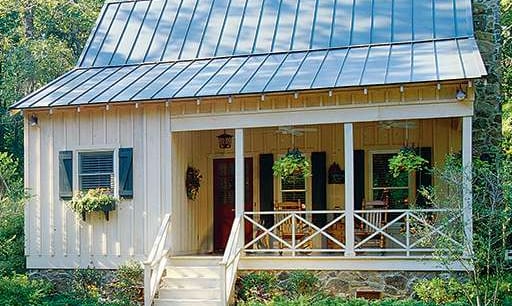Tiny Tower Tensions: Trump’s Petite Pad, Musk’s Big Moves—and Why Everyone’s Talking
FEATUREDGLOBAL EVENTS


You scroll through your feed and—boom—there it is: “Trump’s TINY living space draws fierce criticism.” Then, out of left field: “Elon Musk weighs in—or at least, something Musk-like does.” What’s going on here? Whether you’re here for the real estate scoop, political optics, or billionaire crossovers, there’s something juicy going on. Let’s explore—with an eye for drama, irony, and maybe a little Elon Musk energy.
Trump’s Tiny Space vs. Musk’s Minimalism: A Tale of Size, Perception, and Public Image
When you think of Donald Trump, you picture gold-plated interiors, towering skyscrapers, and spaces that scream luxury. That’s why the revelation of his occupying a small, modest space has stirred such chatter. At first glance, it sounds like a joke—but with photos, headlines, and social media noise, it turns out this small-space story is very real.
In contrast, Elon Musk—known for rockets, electric cars, and Mars ambitions—has also been associated with surprisingly modest living arrangements. Yet the public reaction to Musk’s minimalism couldn’t be more different. This curious contrast offers a masterclass in how storytelling, branding, and expectation shape our perceptions.
The Upside of Trump’s Compact Corner
Let’s start with the potential positives of Trump’s small space:
Efficiency Over Excess – Smaller homes are easier to maintain, cheaper to heat and cool, and simpler to manage. If Trump truly wanted to strip down to basics, this would be a practical move. Imagine retro minimalism—but with a Trump twist.
Privacy Shield – A small hideaway could serve as a secret base away from the constant glare of cameras. For a man often at the centre of controversy, such a retreat might provide strategic isolation.
A Symbolic Pivot – Downsizing could signal a shift from opulence to simplicity. Whether intentional or not, it tells a new story—one where smaller might mean more relatable.
The Downside: Shrinking Luxury, Growing Criticism
The problem is, Trump’s persona is built on big. When grandeur shrinks, the questions grow louder:
A Brand Clash – The image of Trump has always been tied to scale—big deals, big buildings, big presence. A tiny home feels off-brand, creating a jarring mismatch.
PR Stunt or Genuine Shift? – Is this downsizing real, or just a calculated move to appear humble? Scepticism runs high.
Inviting Speculation – In politics, transparency is power. A secretive small hideout could spark more conspiracy theories than admiration.
Media Frenzy – The contrast between Trump’s image and his small living space is irresistible clickbait. Late-night jokes, internet memes, and political cartoons practically write themselves.
Enter Elon Musk: The Minimalist Visionary
Then there’s Musk—a man whose public persona is built not on gold ceilings but on futuristic ambition. SpaceX, Tesla, Neuralink, X (Twitter)—his ventures are as expansive as they come. Yet Musk has been linked to simple, even spartan living conditions.
This paradox feels different in the public eye:
Function Over Flash – Musk’s supposed small home or workspace fits with his engineer’s mindset. He’s all about efficiency, innovation, and avoiding distractions.
Minimalism as Branding – When Musk strips things back, it’s interpreted as focus—not frugality. It aligns with his narrative of solving big problems with smart, lean solutions.
The Public Buys It – Musk in a modest space doesn’t invite ridicule—it fuels admiration. Fans see it as proof he’s too busy changing the world to care about décor.
Why Trump and Musk Get Different Reactions
The difference in public perception isn’t random—it’s all about context.
1. Brand Expectations
Trump: Built on opulence and extravagance. Downsizing feels like a retreat from his own brand identity.
Musk: Built on innovation and disruption. Minimalism feels like a natural extension of his work ethic.
2. Narrative Framing
Trump: His small home is reported as an unusual turn, fueling speculation about financial or political motives.
Musk: His small setups are framed as part of a focused, practical approach to problem-solving.
3. Media Appetite
Trump’s small space: Political contradiction, entertainment potential, and meme-worthy visuals make it viral fodder.
Musk’s minimalism: Reinforces the myth of the genius inventor—media spins it as a quirky, admirable choice.
The Lesson: Size Is Storytelling
This odd pairing of Trump and Musk shows how physical space can become symbolic space in media narratives. A home’s size is never just about square footage—it’s a statement.
Three big takeaways:
Public Figures Live in Public Stories – A celebrity’s living space inevitably becomes part of their myth.
Authenticity Matters – Downsizing works when it feels like a genuine choice, not a forced image shift.
Expectation Shapes Reaction – When you stay consistent with your brand, even radical choices make sense.
Wrapping It All Up
Trump’s compact residence feels like an interruption in his long-running luxury saga—a twist that doesn’t match the established script. Musk’s minimalism, on the other hand, feels like another chapter in his unconventional playbook.
The world loves contrast, and in this case, the same act—living small—produces opposite headlines: Trump gets scepticism, Musk receives praise. It’s a vivid reminder that in the age of instant news, how you live is as much about how your story is told as it is about the walls you live within.
In the end, maybe the truth is this: size isn’t everything—but in the world of billionaires and power players, it’s never just about square meters. It’s about meaning, perception, and the story you choose to tell.
